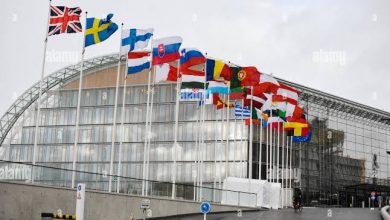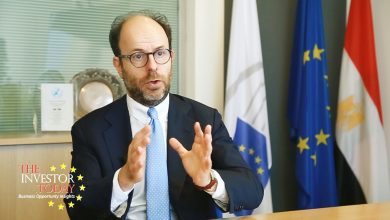Investment in Civilisation: The Foundation of Human Progress

By: Mohamed Salah
Chief Director
Through my work as a documentary director and producer, specializing in the creation of business and diplomatic stories, I have had the privilege of interviewing diplomats, investors, and decision-makers from around the world. These conversations have illuminated a profound truth: the value of investment is central to the development of human civilization. Whether building bridges between nations or driving economic growth, investment underpins the progress of societies, fostering innovation and creating the frameworks for sustainable development. My journey in documenting these stories has deepened my understanding of how strategic investments have shaped the world we live in today.
Civilization is a multifaceted system founded on four key pillars: society, thought, economy, and politics. These intricately interconnected pillars form the bedrock upon which civilizations rise and evolve. All sectors of investment, industry, and trade fall under these four fundamental elements, playing a pivotal role in societies’ establishment, growth, and sustainability. Investment in these areas has not only enabled the development of human civilization but has also driven progress in science, technology, and innovation, shaping the world as we know it today.
Civilisation as an Integrated Investment System
Civilisation is not merely defined by architectural achievements or economic success; it is an intricate web of human interactions and institutions that foster social, intellectual, economic, and political development. At the heart of this system is investment, the engine that powers the four pillars, pushing them towards growth and long-term sustainability. Without investment, the foundation of civilization would be fragile, unable to support the societal and economic advancements that have defined human history.
Investment in Society
Society is the cornerstone of any civilization, comprising the social infrastructure that facilitates human interaction and organization. Investment in social systems—such as education, healthcare, employment, and social justice—has been crucial in developing and sustaining communities throughout history. Ancient civilizations like Mesopotamia and Ancient Egypt thrived by investing in public housing, health systems, and education, creating the necessary conditions for societal stability and growth.
In the early days of civilization, barter systems represented one of the first forms of social investment, where goods and services were exchanged to fulfill communal needs. Over time, this system evolved into more complex markets, where trade became formalized, creating deeper economic ties within and between societies.
Investment in Thought
Intellectual development is a vital pillar of civilization, requiring significant investment to sustain and advance. Civilizations that have made strategic investments in education, science, and research have experienced rapid growth, leading to significant contributions in areas such as medicine, engineering, and mathematics.
For example, Ancient Greece’s investment in philosophy and science gave rise to profound intellectual achievements, establishing institutions like Plato’s Academy that fostered the growth of knowledge. This commitment to intellectual investment allowed Greek civilization to make long-lasting contributions to philosophy, science, and the arts.
In the modern era, investment in intellectual capital continues to drive innovation. Technology companies today invest billions in research and development (R&D), pushing the boundaries of knowledge and leading to breakthroughs that shape the global economy. Without such investments, the growth and dissemination of knowledge would stagnate, halting technological progress.
Investment in the Economy
The economy is the pillar that provides the resources and financial structures necessary for the development of the other pillars. Since the dawn of civilization, societies have relied on investment in agriculture, industry, and trade to build wealth and support social and political institutions. Economic investment has not merely been a pursuit of profit, but rather a fundamental mechanism for sustaining urban growth and infrastructure development.
Trade, in particular, has always been closely tied to investment in manufacturing and international commerce. Civilisations such as the Phoenicians and Romans dominated the ancient world by investing in maritime trade and infrastructure, and developing ports and marketplaces that connected their economies to a vast network of international trade routes.
Today’s global economy hinges on foreign direct investment (FDI) in key sectors like technology, manufacturing, and services. These investments not only spur economic growth but also foster international cooperation and development, highlighting the enduring role of economic investment in shaping human progress.
Investment in Politics
Politics is the pillar that governs and regulates the relationships between individuals, communities, and states. Investment in political institutions is essential for creating stable governance systems that effectively manage resources and foster social and economic growth. Civilizations that have invested in strong and stable political systems have thrived by ensuring social order and equitable resource distribution.
For instance, the Roman Empire invested heavily in building a sophisticated political structure that ensured stability and economic prosperity. This allowed the empire to expand and flourish for centuries, with investments in law, governance, and military infrastructure supporting its dominance.
In modern times, investment in democratic institutions and good governance remains critical for ensuring justice, fostering development, and managing the complexities of the global economy. Nations that prioritize political investment are better equipped to implement large-scale economic projects and maintain social harmony.
Historical Examples of Investment in Civilisation
Urban Development: Ancient cities like Babylon and Rome made significant investments in urban planning, building public infrastructure such as roads, bridges, and government buildings. These investments not only enhanced the quality of life but also strengthened the political and economic frameworks of these civilizations.
Innovation in Medicine: Medical advancements throughout history were made possible by sustained investments in scientific research and experimentation. The Islamic Golden Age was a period where significant investments were made in healthcare and medical studies, leading to groundbreaking discoveries in surgery and pharmacology.
International Trade: The Phoenicians were among the earliest civilisations to invest heavily in maritime trade, developing advanced shipping techniques and establishing extensive trade networks. This investment allowed them to control key trade routes across the Mediterranean and gain significant economic power.
Thought and Economy: An Interdependent Investment Ecosystem
Every new idea or discovery requires an investment framework for its development and sustainability. Innovation cannot thrive without the necessary resources to fund research, implementation, and commercialization. Civilizations that have invested in the growth of intellectual capital have reaped the benefits of sustained development and progress.
Conclusion
The development of human civilization is inseparable from the concept of investment. Whether it is investment in society through improving social structures, in thought by supporting education and innovation, in the economy by fostering trade and industry, or in politics by building stable governance systems, investment has always been the driving force behind the growth and sustainability of civilizations. Without investment, both ancient and modern, the trajectory of human progress would be radically different, highlighting the essential role of financial and intellectual capital in shaping the world we live in today.



